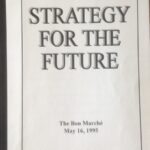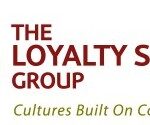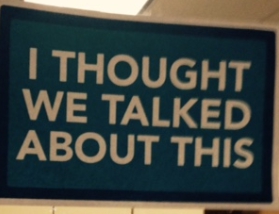
The Case Study of Changing a Culture King County 911 center
March 11, 2014
Cross-training – A Way To Common Values
June 3, 2014American business has always had a love affair with the concept of the powerful entrepreneur – the legends of Rockefeller, Carnegie, Jack Welch or the world’s richest men, Bill Gates. These individuals have always provided the fuel for the legend of American business. Powerful people who make a fortune – this was the American Business dream. I have a slightly different view. Though these individuals were smart and by the end of their lives accomplished a wide range of worthwhile accomplishments, in most cases they got their wealth and power by being a monopoly that took advantage of America’s growth. As America industrialized, these individuals gained control of wires, pipes, oil, building roads, and licensed software. All these areas were built by managed monopolies and, at some point, the U. S. Government decided to break up these monopolies once they became too powerful.
So what does this thought have to do with Loyalty and the idea that our American business culture is changing from a “trickle down” to an “ownership up” mindset.
I contend that American business and the culture of single control in the hands of a few – the idea of best practices, the constant reengineering for increased business efficiency – is having a fundamental organization change that will redefine the ability to maintain this top-down leadership approach. This economic downturn has ripped this leadership approach apart. Our businesses have cut layers of management, creating more horizontal organizations. What is left are some senior leaders and a lot of worker bees, with much less bureaucracy in between – less layers, less oversight. Many organizations` are left with lots of best practices and no middle management to make sure the practices are followed.
As this downsizing or right sizing is taking place, there is one other phenomenon happening that taken into account will fill the void left by the reengineering – social networking.
The idea that now, in every field, the masses are going to have a clear voice on almost every topic. These new social discussions are forcing more input, asking more questions, demanding greater transparency and more authenticity. Individuals are rating service, products and doing more research or “googles” before they act, before they support, and before they buy. The common individual now has the power of an engaged population as never before.
So how do these business cultural changes suggest that “trickle down” is being replaced by the “ownership up” organization? The technology is moving so fast it is very hard to create a monopoly that can be sustained for a long time. Microsoft with all its wealth could not stop Google. The idea that upward mobility is tied to getting promoted to a higher level of management is now confronted with less layers of management to be promoted to. The concept of best practices relies on a regimented culture of business practices and process. Who is going to do all of the audits? Last, the users now have the network and systems to demand real time information, both as research and engagement, to impact how organizations do business.
The convergence of these business cultural changes will create a dramatic change in how American business works. Strong leadership will now be defined by how you get your employees and customers engaged to support the business.
“Trickle Down” is being replaced by the “Ownership Up” Organization.






